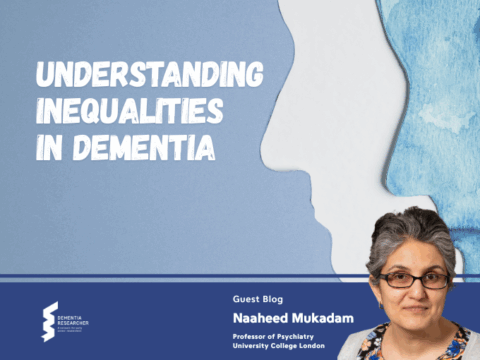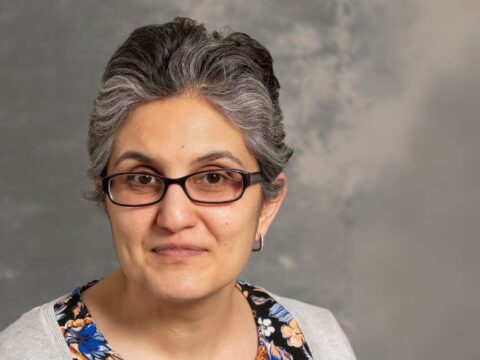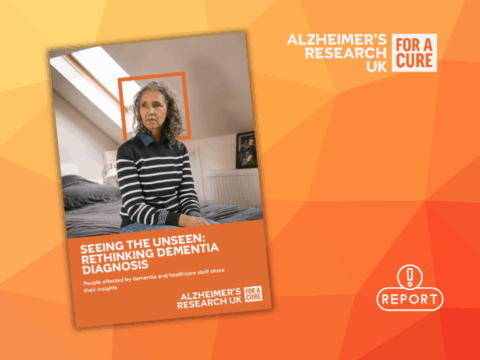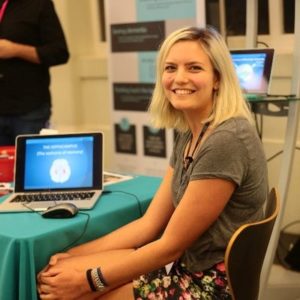 What does your job involve?
What does your job involve?
I am a research assistant, currently studying for my PhD at University College London (UCL). My work involves looking closely at brain scans taken from people over a number of years, to find out whether brain shrinkage is related to preventable factors, such as high blood pressure. This work will allow us to see which areas of the brain are affected most by each risk factor, and also at what point in life people are particularly vulnerable to damage.
Who inspired you to follow a career into dementia research?
I was inspired by my nan who had Alzheimer’s and my mum who still runs a care home for people living with dementia; I worked there as a teenager, so the residents and their families bring me endless inspiration.
What does your research focus on?
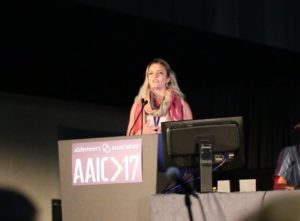
I’ve been trying to understand and characterise one type of damage potentially caused by changes to the blood supply in the brain, called white matter disease. White matter disease shows up as white blobs on brain scans, and by measuring these blobs, I’m able to look at how white matter disease develops alongside Alzheimer’s disease.
Why is this research area particularly important?
We don’t currently have a cure for dementia or even a treatment that slows or stops the diseases that cause it, like Alzheimer’s, so it’s important that we fully explore the role of risk factors for the condition. By treating risk factors like high blood pressure, we may be able to reduce the risk of diseases like Alzheimer’s developing in the first place.
You’re involved in fundraising for Alzheimer’s Research UK too?
I’ve always been keen to help in the charity wherever I can! Last summer I ran 100 km as part of Running Down Dementia, raising over £400 in the process. I spoke before my local parkrun to encourage other runners to join the campaign, some intrigued runners even tried to talk to me about my research while running along on Hampstead Heath. We had a good chat— some feat for first thing on a Saturday!
What has been the highlight of your career so far?
Speaking about my work at the Alzheimer’s Association International Conference, the biggest conference for dementia research
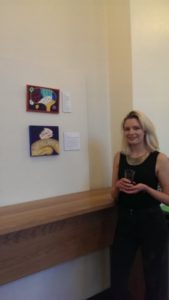
worldwide, stands out. I was sure that I would be quizzed on the use of certain data I talked about at the end of the presentation, and I was approached by the head of the company who provided the database! He praised my work and thanked me; that felt great!
What advice would you give those embarking on a career in dementia research?
In a PhD you will specialise and become an expert in one small area of research so it’s easy to miss the bigger picture.
This complexity is why I think collaboration is more important in dementia research than in any other scientific field. It’s impossible to be an expert in every single system involved! Discussion and collaboration with other scientists is critical, as is having an open mind yet viewing work with a critical eye. But most of all, it’s important to take stock and appreciate your successes!
How do you like to spend time away from the lab?
I do a painting class on Saturdays, which I love! I’m the only one there who is on social media and find the company of people who have no idea what a selfie stick is – and have an altogether different perspective on the world – really refreshing. The photo is of me standing next to my piece at the art-science exhibition, NeuroArt.
I’m lucky enough that I seem to have picked up great friends and a few like-minded people along the way, and like nothing more than a good long natter with them.
There isn’t really a better way to spend a spare afternoon really is there?
Well, I can’t argue with that! Is their one thing you can’t live without?
Tea… I’m unashamed to say I take teabags on holiday!
What is your hope for the future?
Growing up, advancements and breakthroughs in science and technology seemed to be solving so many problems around me; I thought surely we can do something similar for Alzheimer’s disease? I hope that future generations won’t need to worry about developing dementia, but it can only be beaten through research.
Thank you to Alzheimer’s Research UK for providing this content, to see more from them visit https://www.dementiablog.org/

 Print This Post
Print This Post
